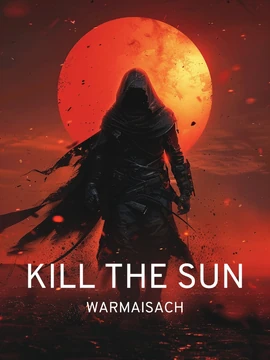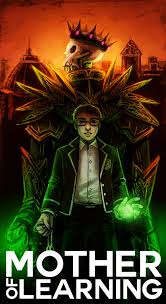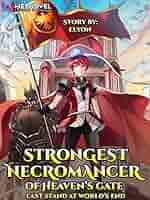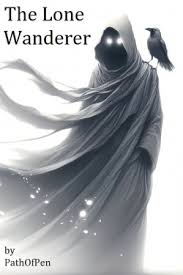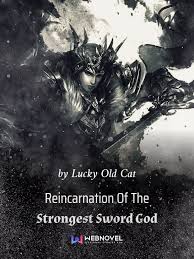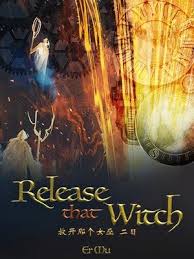The Story in 3 Sentences
A boy named Nick awakens with amnesia in the brutal Dregs of Crimson Fungus City, a nightmarish post-apocalyptic world where humanity is terrorized by spectral entities known as Specters.
His desperate dream of becoming a Zephyx Extractor—a prestigious hunter of Specters—is shattered when a past encounter disqualifies him, only for a mysterious man to offer him a dangerous path toward unimaginable power and horrific mutations.
Nick’s journey forces him to evolve through agonizing transformations and confront the deepest mysteries of his broken world, challenging the very cycle of destruction and the entities that control it.
Why It Stands Out
1. A Grimdark Power System with a Price
The novel’s Zephyx-based progression is a brutal and innovative departure from standard cultivation, where each new mutation is a traumatic event that warps the user’s body and mind, ensuring power is never free and always comes with profound physical and psychological consequences.
2. Uncompromising Atmosphere of Despair
The world-building is a masterclass in oppressive ambiance, crafting a setting where the sun is a distant memory and the city itself feels like a dying character, a suffocating ecosystem of fungal growths, spectral threats, and human desperation that is as tangible and terrifying as the monsters themselves.
3. A Protagonist Designed to Unsettle
Nick is a deliberate and challenging subversion of the heroic archetype, a fundamentally broken and morally grey individual whose journey from a naive boy to a near-villainous force is a brutal deconstruction of idealism in a world that rewards only ruthlessness, making his evolution one of the most debated and compelling aspects of the story.
Characters That Leave a Mark
There’s Wyntor Melfion – the ambitious and calculating scion who recruits Nick not out of charity but as a business investment to secure his family’s inheritance, a relationship that evolves from cold pragmatism into a complex and tragically fractured bond that defines much of the series’ corporate intrigue.
You’ll meet Albert, the enigmatic and powerful mentor who recognizes the unique potential within Nick’s cursed existence, setting him on his path with a training regimen that is as cryptic as it is brutal, embodying the novel’s theme that guidance often comes with hidden agendas.
And Horua? They’re the one who represents a tether to a different kind of humanity, whose relationship with Nick forces him to confront his own crumbling morality and the devastating weight of his actions, serving as a crucial emotional anchor in a story spiraling into darkness.
The Flaws Fans Debate
The novel’s relentlessly grim and tragic tone, with its frequent character deaths and overwhelming sense of despair, is a significant point of contention, praised for its authenticity by some but criticized for being emotionally exhausting and overly nihilistic by others.
A common critique points to the protagonist’s often reactive and passive nature in the early arcs, with some readers finding his initial propensity for internal suffering and crying to be frustrating before his character hardens into a more decisive, albeit darker, actor.
Many fans agree that the ending feels somewhat rushed and leaves certain cosmic-level questions unanswered, culminating in a final sacrifice and a clone being sent into space that some found to be an unsatisfying conclusion to such a complex narrative journey.
Must-Experience Arcs
Vol. 1–2: Specters & The Dreamer – The foundational arc that establishes the horrifying rules of the world and Nick’s first devastating foray into Specter capture, a claustrophobic and terrifying sequence that introduces the core cast and the high-stakes corporate machinations driving the plot.
Vol. 4–7: The Second Specter & Cycle – The sprawling middle act where Dark Dream expands and Nick undergoes his most significant mutations, culminating in the brutal war against the rogue Manufacturer, Cycle, a conflict that cements Nick’s descent into moral ambiguity and explosive power.
Vol. 8: John – The penultimate volume of Nick’s ascent, focusing on his breakthrough to a new Realm of power and the final, costly preparations for the endgame, representing the culmination of his physical evolution at the expense of his humanity.
Killer Quotes
“I do not hate you for the light you shine. I hate you for the shadows you force us to live in to escape it.”
“The system called it a blessing. My body called it agony. My soul knew it was just another chain, forged in a different fire.”
“They begged for a hero to slay the monsters. They never considered that to kill the sun, you must first become a monster of a different kind.”
Cultural Impact
The novel has fostered a dedicated but niche fanbase that passionately theory-crafts about the intricate power system and the lore behind the Specters and Eternals, often comparing its depth to top-tier webnovels like Shadow Slave and Lord of the Mysteries.
Its title, “Kill the Sun,” has become a recognizable phrase within the webnovel community, often used as a benchmark for stories with exceptionally dark themes and audacious, world-ending premises.
Fan reactions are intensely polarized, creating vibrant online debates about the protagonist’s unlikeable nature and the story’s tragic ending, with some hailing it as a masterpiece of grimdark fantasy and others criticizing its relentless bleakness.
Final Verdict
Start Here If You Want:
A power progression system that is deeply integrated with body horror and psychological trauma, where gaining strength feels like losing humanity and every ability has a tangible, often terrible, cost.
A protagonist who is a deliberate and challenging deconstruction of the hero’s journey, embarking on a path of self-destruction that explores the corrosive nature of power and the death of idealism in a hopeless world.
A world so immersive and oppressive it becomes a character in itself, a post-apocalyptic nightmare of bio-mechanical horror and corporate feudalism that is meticulously detailed and utterly terrifying to explore.
Study If You Love:
The intricate, innovative, and punishing power systems found in works like “The Wandering Inn” or the author’s own “Sword God in a World of Magic,” where understanding the mechanics is a core part of the narrative.
The profound psychological character study and tragic descent of Guts from the “Berserk” manga or the grimdark political intrigue and moral compromises of “The First Law” trilogy by Joe Abercrombie.
The cosmic horror and mysterious world-building of “Shadow Slave” or “Lord of the Mysteries,” where uncovering the history of the cataclysm is just as compelling as the main plot.
Avoid If You Prefer:
Stories with hopeful tones, frequent comic relief, or straightforward heroic triumphs where good consistently prevails over evil without significant, lasting personal cost.
Fast-paced, action-centric plots that prioritize constant motion over slow-burn mystery, deep atmospheric world-building, and intense psychological introspection.
Power fantasies where the protagonist quickly becomes dominant and likeable, faces minimal meaningful struggle, or enjoys victories that are not pyrrhic and laden with severe consequences.
